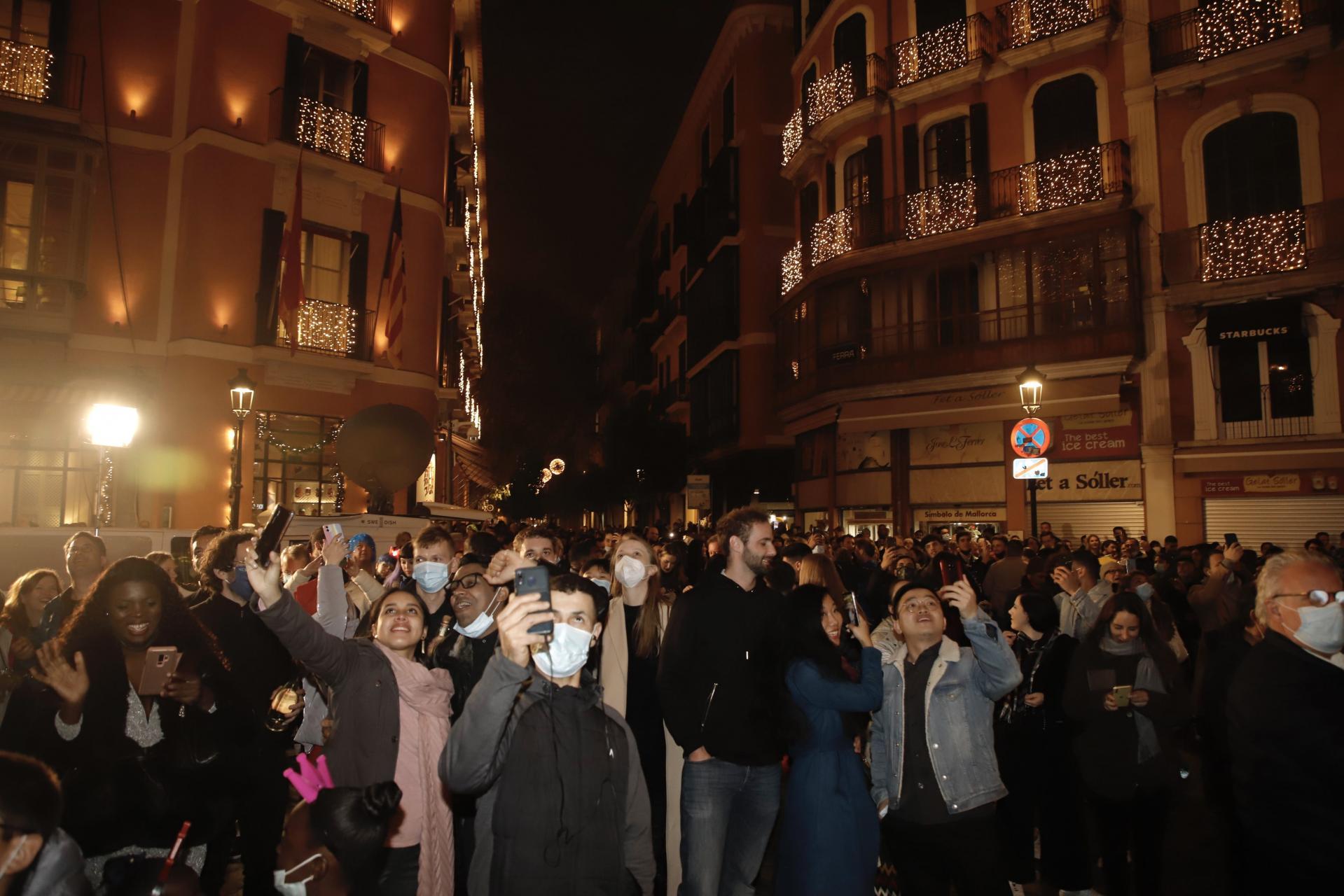"Do I hear 1,900? Any advance on 1,900? Do I hear 2,000, 3,000, 4,000?" Javier Arranz, the regional infectious diseases supremo, was clear that record daily numbers of cases were going to be registered for the time being. And he was right. Javier, the cases auctioneer, had spoken after there were over 1,100 on Christmas Day. By the end of the week, they had doubled. Then along came a maths professor who was predicting 3,000 to 4,000 for this coming week.
Jaw-dropping though the numbers were by comparison with earlier "waves", there was a sense that they were no longer that shocking. As sure as a runny nose and a headache were accompanied by a test, so an Omicron positive was returned. Around one in four people were testing positive. The numbers were humongous, but was everyone now getting inured to the shock value?
This was to in no way to diminish the ongoing seriousness of Covid - people continue to get very sick and to die - but the stresses on the health service were more in evidence with primary care than in the hospitals. Responding to this, the health ministry decided to stop the primary care telephone monitoring of asymptomatic and mild cases. Partly a resourcing decision, there was also the impression that the health service was admitting that the monitoring was unnecessary.
In seeking to try and curb the spread, cancellations were being announced on a daily basis. Muro, Pollensa and Sa Pobla followed the example of other town halls in calling off the Sant Antoni fiestas. Calvia scrapped Kings parades.
The island's travel agencies were reporting 20% cancellation of flight bookings to the mainland. The Lufthansa Group, faced with a fall in demand, pulled numerous flights to Mallorca that had been scheduled for January and February. The German government had put the whole of Spain on its high-risk list and was advising against travel.
Hospitality, which a year ago was on the point of being closed by the government, was deciding to close of its own accord. Some fifteen per cent of establishments, according to one of the restaurants associations, had decided to shut and not reopen until nearer the tourism season. Anxieties about contagion rather than the Covid passport were the reason for people opting not to eat out.
In the nightlife sector, a number of clubs also decided to close, if only over the New Year. One was Son Amar, which called off its New Year's Day special with Richie Hawtin headlining. Another was BCM. Having reopened two days before Christmas, the New Year parties were cancelled. By now, BCM was on the government's naughty step, a video having come out showing lack of mask-wearing and social distancing over Christmas. The club said it was rigorous with the Covid passport but added that enforcing safe distance when people were dancing was difficult.
For clubs staying open (and for other types of establishment), there were special deployments of police and inspectors to check that everything was in order. But because organised parties were being cancelled, there was the fear - as had previously been the case - that illegal ones would be arranged, and with no Covid passports. The scope of the passport was meanwhile extended to the likes of cinemas after the Balearic High Court approved the government's latest application.
With New Year having been at least partially cancelled, there was one good reason to celebrate. New Year's Eve weather was gorgeous, with warm temperatures and clear blue skies, except where it stayed misty. On New Year's Day, the fog was more widespread. Even so, it was a bit like spring, which can't come soon enough, if predictions of the latest crisis being over by then prove to be accurate.


No comments
To be able to write a comment, you have to be registered and logged in
Currently there are no comments.